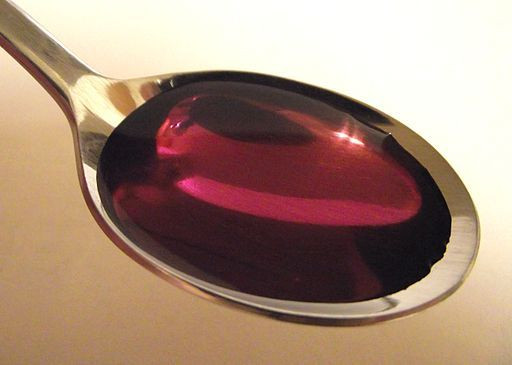Cough Syrup Down Syndrome Treatment? Ingredient Could Boost Learning

A cough syrup Down syndrome treatment is about to be tested in a clinical trial-- researchers say that a common cough syrup ingredient can improve learning and cognitive abilities of people with the genetic disorder.
Down syndrome, the most common genetic cause of learning disabilities in children, is caused by an extra chromosome in DNA called trisomy 21. The World Health Organization estimates that people with Down syndrome account for more than 1 of every 1,000 births- 6 million people- worldwide. Early intervention programs can help meet affected children's needs, but drug interventions, like the cough syrup Down syndrome treatment being tested, may be more easily applied to underserved populations.
The cough syrup Down syndrome treatment clinical trial is spearheaded by researchers at Monash University in Australia. By poring over old research, the scientists discovered a link between the cough syrup ingredient, called BTD-001, and dementia treatment.
BTD-001 was discovered in the 1920s, and was developed into a widely used respiratory stimulant drug that can still be found in some cough syrup products.
Bob Davis, Director of the Centre for Developmental Disability Health at Monash University, explained to ABC News that in the 1950s and '60s, BTD-001 seemed to help people with dementia improve memory, learning, and cognitive abilities:
"At that stage the medication had been shown to be safe and while there were some small studies indicating that it seemed to work, it didn't have the large drug trials that are required nowadays to prove whether something works or doesn't work."
Davis, along with other researchers, decided to test BTD-001's effects in just such a drug trial on Down syndrome patients, based on recent research that the drug boosts neuronal connectivity in the brain.
According to a statement released to Medical Xpress, the cough syrup Down syndrome trial will recruit participants aged 13-35 from regional centers in Australia including Sydney, Perth, Adelaide, Brisbane, Melbourne, Launceston, and Woolongong.
The participants will be randomized to drink flavored water solutions twice daily for 12 weeks, containing one of three ingredients: 50 mg BTD-001, 100mg BTD-001, and a placebo. At set time points during and after the 12-week period, participants will complete standard psychometric tests that assess cognitive and language abilities in order to test the cough syrup Down syndrome treatment.
"Although it's too soon to draw any conclusions, we're hopeful this trial and the continued development of the drug could lead to a product that can improve the cognitive abilities, and ultimately the quality of life of people with Down syndrome," said Davis in the statement.
"With further development, we hope this could provide a path to improving some of the difficulties those living with Down syndrome may have, such as the ability to learn at school, to become self reliant, to get a job or to manage their own finances.
Catherine McAlpine, the head of Down Syndrome Australia, expressed guarded optimism about the cough syrup Down syndrome research in an ABC News interview:
"Clearly, if we can do things that help people with Down Sydnrome be more independent, then that's a good thing for everyone but it can be a little bit complicated when we are talking about quality of life and increased cognition being one and the same because they're not the same thing."
Michael Buxton, age 30, told Perth Now that he will be participating in the cough syrup ingredient's clinical trial at Monash University:
"If the medicine is successful, I hope I will be able to think and speak more clearly so people can understand what I am trying to say better."



























